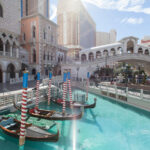If your bucket list includes the experience of sitting in an Italian hilltop town, while sipping a glass of fine wine and gazing out over ancient olive groves, you're in luck. We’ve uncovered 10 places in Italy where you can do exactly that. While each varies by location, they share a few things in common. For starters, they're old -- some are even more than 2,700 years old. You'll also most likely find cobblestone streets and churches here. Still, each one has its own charm and secrets to discover. See for yourself below.
1. Civita di Bagnoregio
Photo courtesy of Siri Spjelkavik via Flickr
Founded by the Etruscans 2,500 years ago, Civita di Bagnoregio is largely abandoned, partly due to the fact that it’s eroding at a relatively fast rate. Fewer than 15 hearty souls call Civita di Bagnoregio home, and access it via a long footbridge. But tourists, who are drawn to the whitewashed 16th-century Romanesque Church of San Donato in the main piazza, overlooking the Tiber River Valley, are reviving it.
2. Assisi
Photo courtesy of Roberto Ferrari via Flickr
The patron saint of animals, Saint Francis of Assisi, was born here in the 12th century. While visiting, stop by St. Francis Way, a walkable trail of churches, including the 13th-century Basilica of St. Francis. Though it was struck by two earthquakes, the church, which is actually two separate churches in one, survived. The upper portion boasts an Italian Gothic style and the lower is darker, with vaulted ceilings. Both levels are adorned with frescoes by prominent late-medieval painters, like Pietro Lorenzetti. In fact, its art and architecture is so exquisite that it has been designated a UNESCO World Heritage site.
Hotel Pick:
3. Brisighella
Photo courtesy of Giorgio Minguzzi via Flickr
The wall surrounding this ancient town was built for defense, and the imposing castle, Rocco Manfrediana, was a fortress that served a military purpose, as did the nearby clock tower. Cobblestone alleys lead to Via del Borgo, an elevated road covered almost entirely with different styles of arches. You’ll also find the Church of the Osservanza (circa 1520) here, which is the home of the Madonna and Child with Saints painting by Marco Palmezzano. The town is also known for its abundance of festivals, including its large medieval festival in the summer and the olive festival in late fall. Keep in mind this part of Italy gets snow, which transforms Brisighella into a winter wonderland.
4. Orvieto
The tiny, twisting lanes lined with modest stone houses seem almost out of place in the shadow of Duomo di Orvieto, an imposing cathedral. You’ll find a Luca Signorelli fresco of The Last Judgement in the San Brizio Chapel, which, according to legend, inspired portions of Michelangelo’s work on the Sistine Chapel. A climb to the top of the Torre del Moro bell tower is a must — we suggest experiencing it at sunset.
Hotel Pick:
5. Taormina
This tourist-friendly town in Sicily has been inhabited since the Iron Age, and more recently, has attracted artists and writers (D.H. Lawrence and Truman Capote both took up residence here). The view is incredible — the destination encompasses the Ionian coast, as well as the Mediterranean and Mount Etna volcano, depending on which way you’re facing. Plus, the third-century Greek amphitheater is well preserved and among the largest in Italy, hosting opera and other performances in the summer.
Hotel Pick:
6. Pitigliano
Photo courtesy of Maurizio Abbiateci via Flickr
Located in a less-traveled part of Tuscany, this town can only be accessed by bus or car (there’s no train service). But that only makes it more of an undiscovered gem. Once you are in Pitigliano, you can easily see it all on foot. Head to the tourist office and ask about tours of the underground tunnels, caves, and tombs. You’ll even see a Christian cave chapel dating to 400 AD. The 14th-century Palazzo Orsini (The Orsini family was one of several who held sway here over the centuries) is now a museum where you can see a variety of artwork and relics as well as a medieval torture chamber. The ancient Jewish quarter, empty since shortly after WWII, is also open to the public.
7. Cortona
Photo courtesy of shizzi via Flickr
A more than 2,700-year-old Etruscan town, Cortona is famous for its glorious hilltop views (and for being where “Under the Tuscan Sun,” starring Diane Lane, was filmed). At 1,968 feet above sea level, you can see all the way to Lake Trasimeno. Its steep, tiny alleys lead up to the main piazza, where you can savor a glass of local Vino Nobile di Montepulciano. Steaks from Chianina cattle, bred nearby, are commonly served in restaurants, as is cured wild boar meat. And shops specialize in local extra virgin olive oil as well as a variety of handcrafted goods made of leather, ceramic, or clay.
Hotel Pick:
8. Montepulciano
Perched high on a 2,000-foot limestone ridge, the walls around Montepulciano date back to the 14th century. Streets are for strolling — not cars — so it’s easy to lose yourself for an entire afternoon among the many shops, Renaissance architecture, and wine-tasting stalls. The town is known for its wonderful wines, most notably Montepulciano d’Abruzzo, a dry red.
Hotel Pick:
9. Bagno Vignoni
This ancient hamlet is famous for its hot springs, first discovered by pilgrims on their way to Rome. Since then, popes, saints, and statesmen have stopped by the town square — essentially unchanged since the 16th century — for a rejuvenating soak. The water still comes from the same underground aquifer as it did then. Go on and dip your feet in the thermal water before puttering around in the bookshop.
Hotel Pick:
10. Spello
Photo courtesy of ho visto nina volare via Flickr
From the gates and arches to the ruins of a Roman amphitheater, remnants of Spello‘s days as a Roman colony in the first century BC can be found everywhere. The residents here love their flowers, indulging in good-natured competition with neighbors about whose flower-bedecked stone home and property is most lovely. On the ninth Sunday after Easter, folks work all night to make more than 60 carpets made of posies for the Corpus Domini feast. The most ambitious among them craft replicas of religious artwork using only the petals and seeds.
Hotel Pick:
You’ll Also Like:
- 8 Italian Castle Hotels That Are a Fairytale Come True
- Most Romantic Hotels in Tuscany
- The Most Romantic Clifftop Hotels in Europe
All products are independently selected by our writers and editors. If you buy something through our links, Oyster may earn an affiliate commission.







